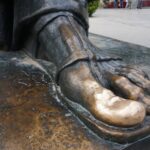Croatia has accepted the obligation to accommodate up to 1,600 migrants.
Results of the referendum in Hungary demonstrate that there are different opinions about the migrant crisis, and now it is important to reach a consensus within the European Union, said on Monday Croatian Foreign Minister Miro Kovač, adding that Croatia would fulfil its obligations under the agreement on the redistribution of migrants, reports Večernji List on October 3, 2016.
Croatia assumed the obligation to accept up to 1,600 migrants within the system of redistribution and it will meet that obligation. The higher number which is occasionally being mentioned in the Croatian media is overblown, said Kovač after the opening of the conference “Model European Union Zagreb 2016”.
Kovač also commented on the statement by Serbian Foreign Minister Ivica Dačić, who said that the speech made by Pope Francis in Georgia, in which he said that conversion of Orthodox believers was a great sin, was the largest ever criticism made by Vatican towards the actions of Croatian Cardinal Alojzije Stepinac during the World War II. “The decision on the canonization will be made by the Holy See, that is completely clear. I looked at the speech of the Holy Father in Georgia and it seems to me that the statement used by Dačić had been taken out of context and has been in a way unacceptably and inappropriately interpreted”, said Kovač.
Speaking about municipal elections in Bosnia and Herzegovina, the Foreign Minister expressed his satisfaction that his party’s partners, the Croatian Democratic Union (HDZ) of Bosnia and Herzegovina, have achieved excellent results and would have more municipal mayors than before. “We are not satisfied with the fact that local elections were not held in Mostar, where there has not been a mayoral election for eight years. We have to solve that because it is important for the stability of Bosnia and Herzegovina, and also for the local Croats”, said Kovač, adding that Croatia strongly supported the accession of Bosnia and Herzegovina to the EU.
Kovač said that the European Union was in crisis, but that twenty years ago there were similar problems. “We need to smartly combine a national and an overall European identity. We have to stick together and work together because the European Union is the best project that has ever been conceived in Europe”, he concluded.








